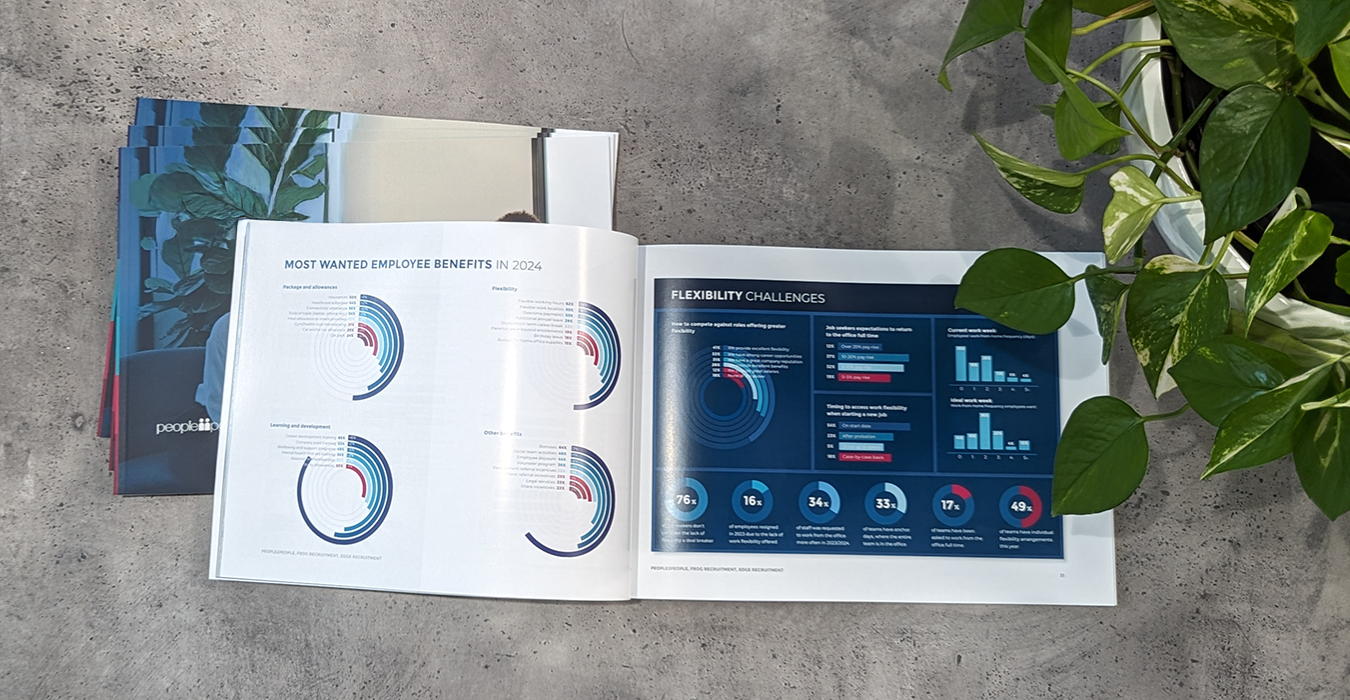
Recruitment Update
The property and real estate industry continues to grapple with talent shortages, particularly in commercial and residential property management, as well as facilities and operations management. The hiring landscape has shifted slightly over the past year, with a notable decline in demand for administrative and accounts managers. Employers remain open to upskilling candidates, with 64% willing to train high-quality hires lacking industry-specific experience if they align with company culture. However, the challenge persists, with 23% of employers struggling to hire commercial property managers and 20% facing difficulties filling residential property management roles.
The demand for flexibility and benefits has also evolved. Bonuses and remote work options are now the most commonly offered benefits, each provided by 56% of employers, while career development training has seen a decline, with only 36% of companies prioritising it compared to 54% last year. AI and automation are emerging as key drivers in property management, with virtual property tours (33%) and AI-assisted workflow automation (31%) gaining traction. As the market adjusts to evolving workforce expectations and technological advancements, businesses must balance competitive salaries, upskilling initiatives, and automation to attract and retain top talent.
of property and real estate teams plan to grow their teams in 2025
76%
of property and real estate teams have started using AI to maximise their efficiency
67%
of teams describe themselves as slightly or significantly under-resourced
Industry Leaders Highlight
"Our key talent strategy has been to build our own candidate pipeline through our cadet program, which has ensured that we have been able to attract and develop talent, ensure retention through clear career progression frameworks and ongoing investment, and fill key roles internally. It’s an approach that supercharges our recruitment strategy when used alongside strong partnerships with recruitment agencies that hold key relationships and insights to industry talent and movements.
As our cadet program enters its fifth year, it’s been vital to look at the lifecycles of staff within the business and their longer-term career growth. To do this, we’ve developed Job Scorecards for every role, that state role expectations and responsibilities, measurable KPI’s, SMART and long-term goals. We can now map the training and development needed to progress employee in line with their personal plans, and our agency needs. In today’s market, key skills such as resilience and adaptability are essential. The speed at which markets, legislative reforms, and technological advancements now move means that to succeed, you need to work with them and be ready for anything. AI has also had a significant impact on reinforcing our priorities. When anything can be automated, what boundaries do you set to uphold your company values and client care? For us, that means embracing AI in ways that free up our staff to do what they do best – serve their clients – without compromising human engagement."



